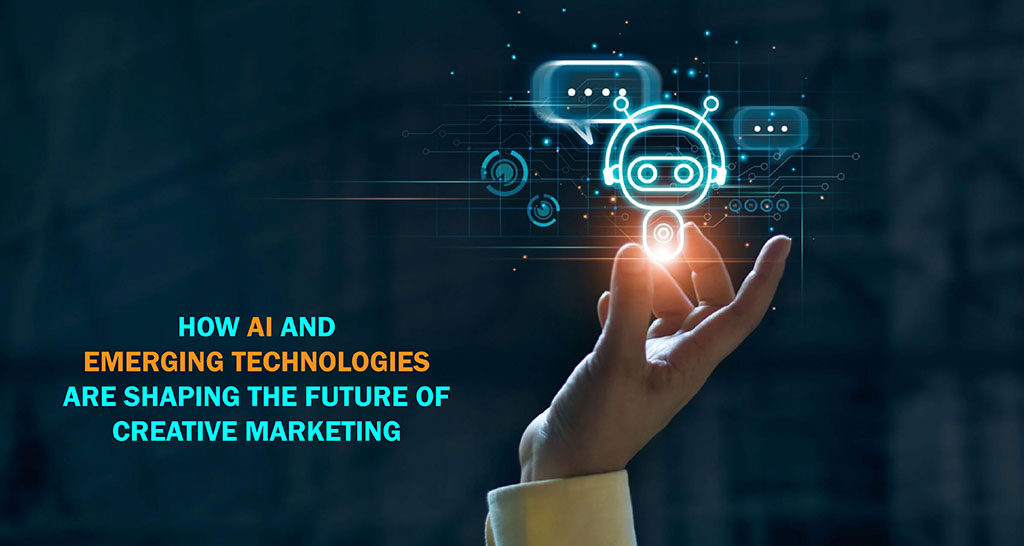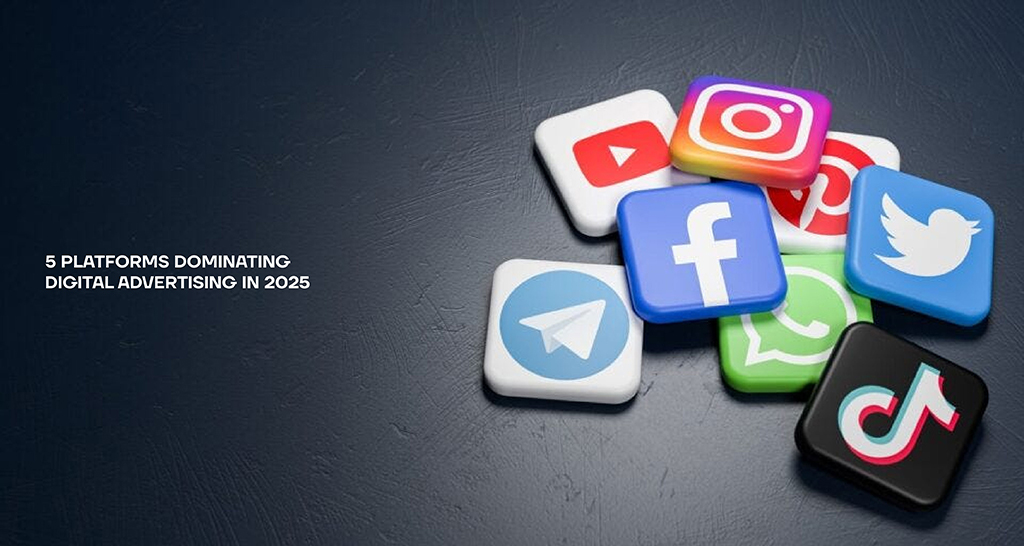In the rapidly changing marketing landscape, the incorporation of Artificial Intelligence (AI) and new technologies represents more than a mere trend; it signifies a transformative revolution. AI is reshaping how brands connect with consumers, offering capabilities including hyper-personalized content and automated campaign optimization. Coupled with advancements in augmented reality (AR), virtual reality (VR), and blockchain, these technologies empower marketers to design exceptionally innovative, effective, and immersive experiences. As brands strive to maintain their competitive edge, the future of creative marketing will increasingly be influenced by these technological advancements. This discussion explores the impact of AI and emerging technologies on the future of creative marketing.
- Hyper-Personalization through AI
Personalization has traditionally been a fundamental aspect of successful marketing. Nevertheless, artificial intelligence is elevating this idea by enabling brands to provide exceptionally customized content and experiences on a large scale. Utilizing machine learning algorithms and data analytics, AI can examine consumer behavior, preferences, and previous interactions with a brand to forecast future actions and develop highly personalized marketing strategies.
AI-driven recommendation systems employed by organizations such as Netflix and Amazon allow marketers to provide product suggestions tailored to an individual’s browsing and purchasing history. In a similar vein, AI-based content generation tools are utilized to automatically create personalized emails, product descriptions, and social media posts, thereby guaranteeing that each content piece is both pertinent and timely.
- Automation and Efficiency in Campaign Management
AI is significantly transforming marketing, particularly through the automation of various processes. Campaign management, which historically demanded considerable human effort for activities like A/B testing, data analysis, and audience segmentation, is now becoming more automated. AI technologies are capable of streamlining these tasks, thereby minimizing the time and resources needed for implementation.
AI-powered platforms such as Google Ads and Facebook Ads leverage machine learning to enhance ad targeting and bidding techniques. These systems autonomously evaluate user data and modify campaigns in real-time to optimize return on investment. This advancement allows marketers to concentrate on strategic planning, as AI manages repetitive and data-intensive tasks.
- Data-Driven Insights for Smarter Decision-Making
Artificial intelligence demonstrates exceptional capability in handling extensive datasets with remarkable speed. For marketing professionals, this implies that AI can efficiently examine customer information, identify trends, and provide actionable insights that were once challenging, if not unfeasible, to discover through manual efforts.
Predictive analytics represents a domain in which artificial intelligence is exerting a considerable influence. Through the examination of historical behaviors and the identification of patterns, AI is capable of projecting future actions, enabling brands to foresee customer requirements and provide relevant content promptly. For instance, predictive models driven by AI can determine which leads have the highest probability of converting into customers or anticipate the kinds of content that will appeal to particular audiences.
- Immersive Experiences with AR and VR
Emerging technologies such as augmented reality (AR) and virtual reality (VR) are transforming the manner in which brands connect with their customers by providing immersive and interactive experiences. These advancements empower marketers to develop captivating campaigns that integrate the digital and physical realms, enabling customers to interact with products and services in innovative ways.
- Blockchain for Transparency and Trust
Blockchain, the foundational technology for cryptocurrencies such as Bitcoin, is gaining attention for its prospective uses in marketing. A significant benefit of blockchain is its capacity to offer transparency and security, attributes that are immensely beneficial within the digital advertising landscape.
- Creative Content Generation with AI
Artificial intelligence is transforming the creative processes within the marketing sector. Tools for content creation powered by AI, such as GPT-based language models, enable marketers to produce written material for blogs, social media, emails, and advertisements, thereby considerably decreasing the time required for brainstorming and drafting.
In the domain of visual design, artificial intelligence-driven tools such as Canva and Adobe Sensei are simplifying the process for individuals without design expertise to produce impressive visuals for marketing initiatives. These platforms utilize machine learning algorithms to recommend design components, color schemes, and layouts tailored to the user’s content and objectives. Furthermore, AI can assist in video production by editing clips, incorporating effects, and even generating scripts. Thus, AI is not merely enhancing repetitive tasks; it is also playing a significant role in the creative process.
Conclusion
The ongoing advancements in artificial intelligence and emerging technologies are set to significantly transform the landscape of creative marketing. Innovations such as hyper-personalized experiences, immersive storytelling, data-driven insights, and automated campaign management are enabling marketers to develop campaigns that are not only more engaging but also more effective and efficient.
The integration of artificial intelligence with augmented reality, virtual reality, and blockchain technologies is creating unprecedented opportunities for artistic expression and consumer interaction. Although these advancements offer thrilling prospects, they also prompt critical discussions regarding ethics, data privacy, and the significance of human creativity. In the future, brands that achieve success will be those that effectively balance the utilization of AI’s potential while preserving a human element that connects with consumers emotionally.








